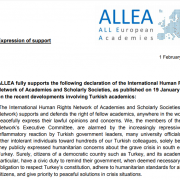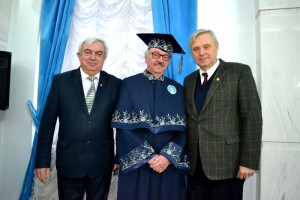ALLEA Permanent Working Group Science & Ethics met in Stockholm
The ALLEA permanent Working Group on Science & Ethics held its first meeting in 2016 in the exquisite premises of the Royal Swedish Academy of Letters, History and Antiquities on 18 and 19 February. Following a dinner with academy Vice-President Professor Anders Andrén, the group had a busy schedule for the second day of the meeting, including the election of a new chair and a discussion about a potential update of the ALLEA-ESF European Code of Research Integrity.
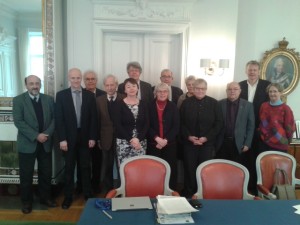
The members of the ALLEA Permanent Working Group Science & Ethics
The meeting welcomed the attendance of the Chair of the ALLEA Permanent Working Group on Intellectual Property Rights, Professor Joseph Straus. He came to Stockholm to offer valuable input on issues surrounding open access and the patentability of plants. Professor Straus’ attendance is a further sign of continued cooperation between ALLEA working groups, a development that is intended to continue in the future.
A particular welcome was also extended to the new members of the working group, Els van Damme from the The Royal Flemish Academy of Belgium for Science and the Arts and Maura Hiney from the Royal Irish Academy.
In one of the first decisions of the day, the Chair of the working group, Professor Göran Hermerén was re-elected to chair the group for another three years. The participants thanked Göran Hermerén for his work and he voiced appreciation for the support and is optimistic the working group will continue to provide work of importance for the scientific community in general and for ALLEA and the member academies in particular.
Another important item on the meeting’s agenda was the consideration of a potential update for the ALLEA European Code of Conduct for Research Integrity. The original document was released in 2010 together with the European Science Foundation (ESF) and the members of the group agreed that an update and the inclusion of new issues would be highly desirable. The group will now look into potential amendments to the code, taking into consideration related documents that have been published since the original publication of the code. Results are intended to be presented at the fifth World Conference on Research Integrity in Amsterdam at the end of May 2017.
The next meeting of the working group is planned for autumn 2016 in a yet to be decided location.
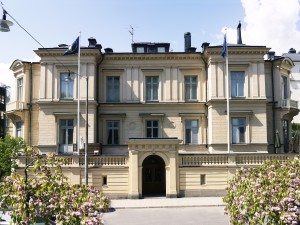 Queen Lovisa Ulrika founded the Royal Swedish Academy of Letters, History and Antiquities 20 March 1753 to promote research and other activities in the humanities, theology, law, and social science disciplines, as well as stewardship of cultural heritage sites.
Queen Lovisa Ulrika founded the Royal Swedish Academy of Letters, History and Antiquities 20 March 1753 to promote research and other activities in the humanities, theology, law, and social science disciplines, as well as stewardship of cultural heritage sites.
The Academy’s aims are:
- to initiate and support international collaboration in the disciplines within the Academy’s field of activities;
- to publish academic writings in the Academy’s domain;
- to support deserving researchers and others who have furthered the objectives of the Academy;
- to issue statements in matters related to the domain of the Academy’s activities
The Academy awards three major prizes and several smaller ones.
As a free learned society the academy receives no governmental funding but has through multiple donations built up considerable capital.
The Academy supports extensive conference and symposium activities and funds projects of great academic value that are not given priority by governmental financiers.
To read more about the Royal Swedish Academy of Letters, History and Antiquities click here.
For more information about the ALLEA Permanent Working Group Science & Ethics click here.

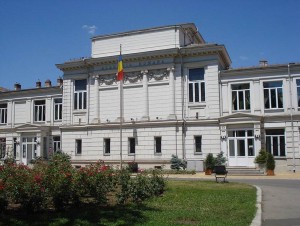 The participants were warmly welcomed to the Academy by the Academy’s President Professor Ionel Valentin Vlad. Throughout his career as a physicist, Professor Vlad has always sought to engage in international scientific cooperation and was, thus, highly appreciative of ALLEA’s visit to his Academy. To start off the meeting, ALLEA President Günter Stock informed the participants about recent ALLEA activities and the Board members received an update on the status of membership dues for the year 2015 as well as an outlook for the year 2016. Furthermore, the participantsdiscussed the progress made in the preparation of a European Commission Horizon 2020 call, in cooperation with a consortium of academy networks, to participate in SAM.
The participants were warmly welcomed to the Academy by the Academy’s President Professor Ionel Valentin Vlad. Throughout his career as a physicist, Professor Vlad has always sought to engage in international scientific cooperation and was, thus, highly appreciative of ALLEA’s visit to his Academy. To start off the meeting, ALLEA President Günter Stock informed the participants about recent ALLEA activities and the Board members received an update on the status of membership dues for the year 2015 as well as an outlook for the year 2016. Furthermore, the participantsdiscussed the progress made in the preparation of a European Commission Horizon 2020 call, in cooperation with a consortium of academy networks, to participate in SAM.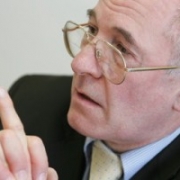
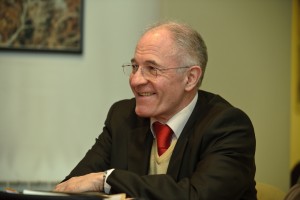 To commemorate his extensive scholarly work on religions in Europe and his reflections on European society, the French philosopher Rémi Brague will be the third scholar to be awarded the All European Academies Madame de Staël Prize for Cultural Values; a prize initiated by ALLEA, the European Federation of Academies of Sciences and Humanities with the friendly support by Stiftung Mercator.
To commemorate his extensive scholarly work on religions in Europe and his reflections on European society, the French philosopher Rémi Brague will be the third scholar to be awarded the All European Academies Madame de Staël Prize for Cultural Values; a prize initiated by ALLEA, the European Federation of Academies of Sciences and Humanities with the friendly support by Stiftung Mercator.
